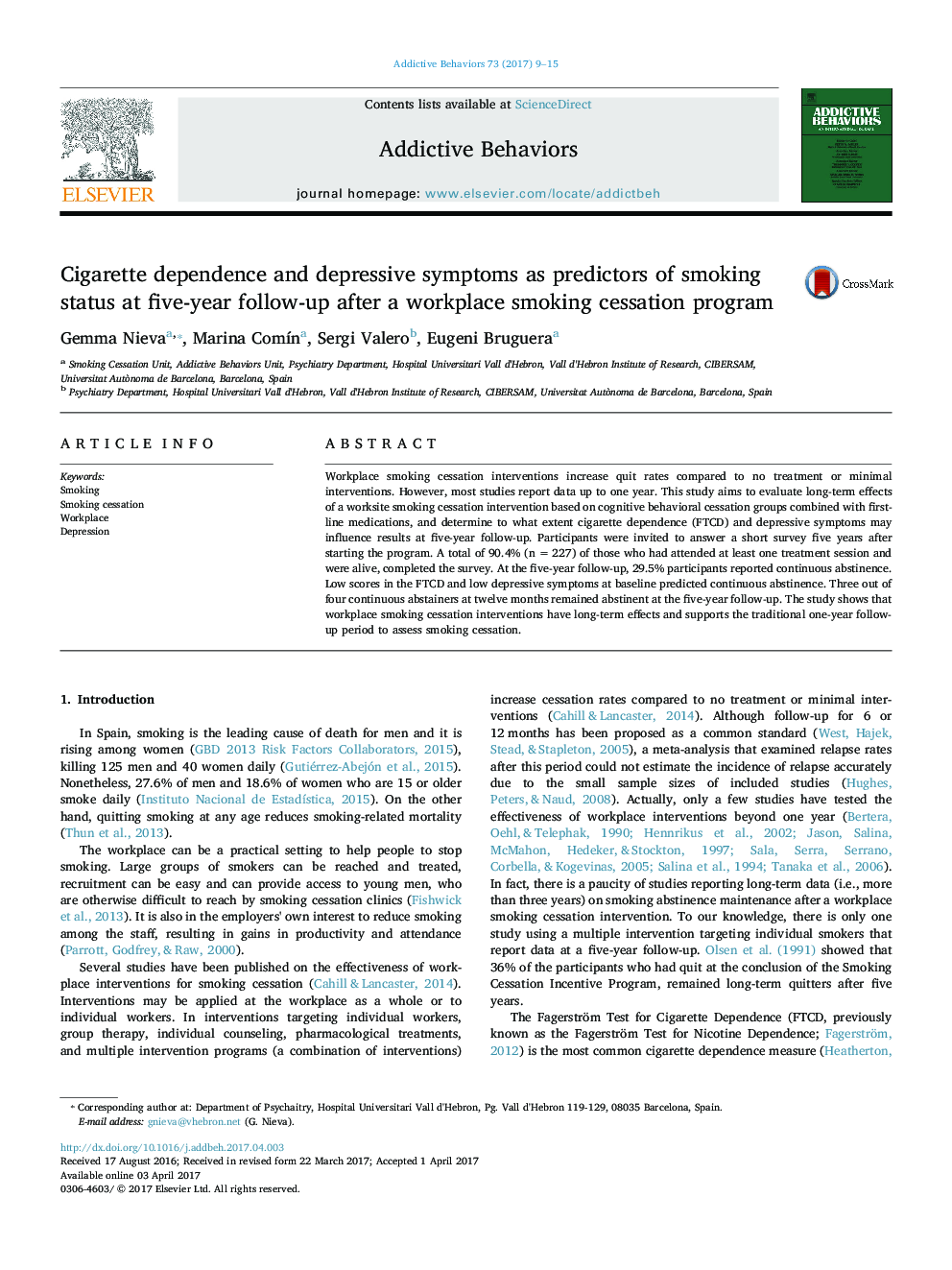| Article ID | Journal | Published Year | Pages | File Type |
|---|---|---|---|---|
| 5037558 | Addictive Behaviors | 2017 | 7 Pages |
â¢Three out of four continuous abstainers at twelve months remained abstinent at the five-year follow-up.â¢Low scores in the FTCD and low depressive symptoms at baseline predicted continuous abstinence.â¢Cigarette dependence and depressive symptoms should be addressed in workplace smoking cessation programs.
Workplace smoking cessation interventions increase quit rates compared to no treatment or minimal interventions. However, most studies report data up to one year. This study aims to evaluate long-term effects of a worksite smoking cessation intervention based on cognitive behavioral cessation groups combined with first-line medications, and determine to what extent cigarette dependence (FTCD) and depressive symptoms may influence results at five-year follow-up. Participants were invited to answer a short survey five years after starting the program. A total of 90.4% (n = 227) of those who had attended at least one treatment session and were alive, completed the survey. At the five-year follow-up, 29.5% participants reported continuous abstinence. Low scores in the FTCD and low depressive symptoms at baseline predicted continuous abstinence. Three out of four continuous abstainers at twelve months remained abstinent at the five-year follow-up. The study shows that workplace smoking cessation interventions have long-term effects and supports the traditional one-year follow-up period to assess smoking cessation.
